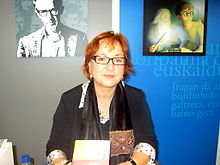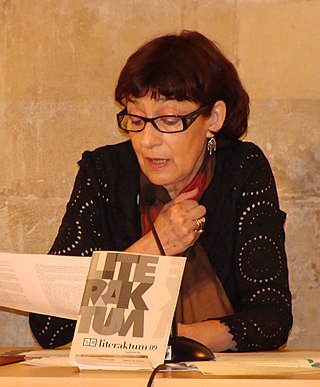
Olvido García Valdés is a Spanish poet, essayist, translator, and professor. She is married to the poet Miguel Casado.
Hilario Barrero is a Spanish writer, translator, professor and poet. He also is a columnist with Fifth Column in The New York Times.

Mohsen Emadi is an Iranian/Mexican poet, translator and filmmaker. Born and raised in Iran, he left for Finland in 2009 and has resided primarily in Mexico since 2012, working as a lecturer and researcher in poetry and comparative literature for various institutes in the country.
Julieta Valero is a Spanish poet who writes in Spanish.
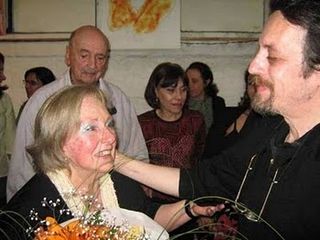
Selva Casal was a Uruguayan poet.

Ramon Saizarbitoria is a contemporary Basque writer and sociologist.
Janette Becerra is a Puerto Rican poet, writer, teacher and literary critic. She obtained an MA in comparative literature and a Ph.D. in Spanish literature at the University of Puerto Rico, Río Piedras Campus. She has been a Professor of Hispanic Studies at the University of Puerto Rico at Cayey since 2000.
Juana Rosa Pita is a poet, writer, editor and translator. She was born in Havana on December 8, 1939. She left Cuba in 1961. Since then she has lived in many cities, including Washington, Caracas, Madrid, New Orleans, Miami, and Boston, where she currently resides. From 1989 to 1992 she was Visiting Professor at Tulane University. She is considered one of the most important contemporary Cuban and Latin American poets. The late Nicaraguan poet Pablo Antonio Cuadra hailed her as "one of the outstanding voices of Cuba’s pilgrim culture. Book after book Juana Rosa Pita has been creating a mysterious realm of love and prophecy: an island of enchantment where words restore all that hatred turned to ashes."
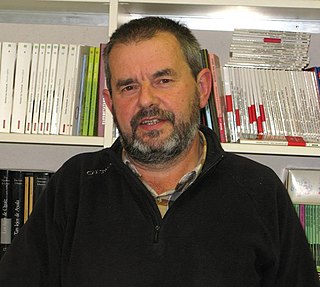
Joxantonio Ormazabal (1948–2010) was a Basque and Spanish author of primarily children's literature in the Basque language. He also published under the pen name of Joxean.
Laura Yasán was an Argentine poet.

Amada Elsa López Rodríguez is an Equatoguinean-Spanish writer specializing in poetry.

Pilar Paz Pasamar was a Spanish poet and writer whose work has been translated into Italian, Arabic, French, English and Chinese. She was a member of the Cádiz branch of the 1950s poetic generation. She was a member of the Real Academia Hispano Americana de Cádiz since 1963. Her awards and honors include second place from the Premio Adonáis de Poesía for "Los buenos días" (1954), Adoptive Daughter of the city of Cádiz (2005), Meridiana Prize of the Andalusian Institute of Women (2005), included in the section "Own Names" of the Instituto Cervantes, and Author of the Year by the Andalusian Center of Letters of the Junta de Andalucía (2015). The city council of her hometown annually awards the Pilar Paz Pasamar Prize for short stories and poetry by women.

Aizpea Goenaga Mendiola is a Basque actress and film director. She was the director of Etxepare Basque Institute, the institute of the Basque language and culture between 2009 and 2016. She belongs to a well-known dynasty of Basque actors, Aizpea is the aunt of Bárbara Goenaga, an actress herself, the daughter of the actress Juani Mendiola Barkaiztegi and the sister of the artist Juan Luis Goenaga.
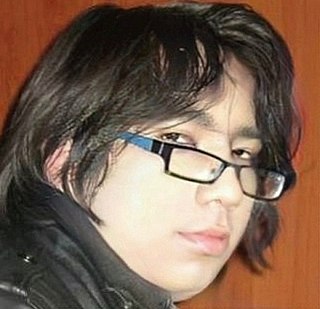
Raúl Alfonso Allain Vega is a Peruvian writer, poet, editor and sociologist. He is a contributor to media such as América Latina en Movimiento, Rebelión, Pressenza, Crónica Popular and La Onda digital.
Tamara Kamenszain was an Argentine poet and essayist.
Jeannette Miller - Jeannette de los Ángeles Miller Rivas - is a writer, poet, narrator essayist and art historian of Dominican art. She was awarded the National Literature prize from her country in 2011.

Paloma Chen is a Chinese–Spanish poet and journalist. In 2021, she was awarded the Second Living Poetry Prize which she received at the Royal Spanish Academy.
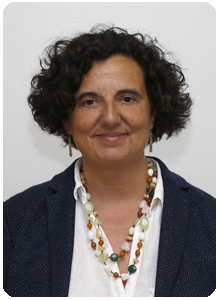
Berta Piñán Suárez is an Asturian writer, professor of Spanish Language and Literature, full member of the Academy of the Asturian Language, and since July 25, 2019, Minister of Consejería de Cultura, Política Lingüística y Turismo del Principado de Asturias.

Yolanda Pantin is a Venezuelan author who has mainly written poetry, although she has also worked in children's literature.
The National Award for Literature in the Poetry Category has been presented annually by the Ministry of Culture of Spain since 1977.
